At 18:00 on December 3, 2020, the "Japanese Classic Reading Platform"-"Battle Royale" movie sharing session of the School of Social Studies will be held at B309 in the main building. This film sharing seminar was lectured by Wang Nan from the Department of Sociology of the School of Sociology. The members participating in the sharing meeting included students majoring in sociology and social work from the School of Sociology.
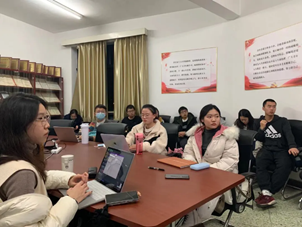
At the beginning of the sharing session, Teacher Wang Nan gave a brief introduction and introduction of the content of this movie. "Battle Royale" is a film directed by the famous Japanese director Shinji Fukasaku and released in Japan in 2000. The film is adapted from the novel of the same name by Japanese novelist Takami Hiroharu. It tells the story of a third-year student in a middle school who was sent to a deserted island to play a "killing game" due to loose discipline and rebellious resistance. Teacher Wang Nan also introduced the specific process of this sharing session, that is, everyone first watched the movie live, and then discussed based on the movie content and the questions raised by the teacher-student interaction.
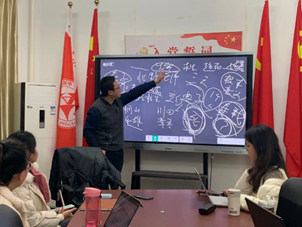
After watching the movie, Teacher Wang Nan first asked the students about their intuitive feelings and doubts after watching the movie. Some students are interested in the selection of characters and scenes in the film, and the setting of the ending, hoping to understand the special meaning of the role setting of transfer students; some students noticed the contradictions in the role of Teacher Kitano; The relationship between Noriko and Kitano, Kawada and Keiko in the film raised doubts... Teacher Wang Nan affirmed the students’ thinking, and conducted preliminary analysis and answers. He asked the students to think about why the film is extremely violent. Strong, but uniquely beautiful? The highly individual roles in the class are unforgettable. Where does this feeling come from? How can the choices made by the characters in the play move us? What is the fundamental meaning of the film?
In view of the interest of many students in the background music in the film, Mr. Wang Nan made a brief analysis from the point of view of the soundtrack of the film. He pointed out that the soundtrack in the film has a unique purpose and is closely integrated with the relaxed plot. The music that highlights the tension is actually It is secondary. It is classical music that leaves a deep impression on the audience, which in turn leads to the fact that in this film, killing is only the surface, and the deeper content is being displayed with classical soothing music. White space is more thought-provoking.
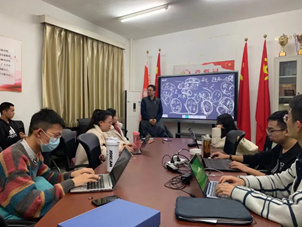
Then, Mr. Wang Nan explained how the characters in the play face the impending death and understand the meaning and value of life from it. When a person’s life is compressed to three days, the true nature of a person and the most important pursuit in life Will be exposed. The teacher affirmed Chikusa’s meticulous attitude towards life and death, the more he faced death, the more he must devote himself to life and strive to pursue his beloved attitude towards life, and inspired everyone to think about the spirit of "Japanese survival aesthetics is cherry blossom aesthetics" Cultural proposition. The teacher pointed out that the most wonderful thing in Japanese culture is that when people face death and even realize that the whole world is an illusion, how to show their lives in the most beautiful and powerful way, from the short-lived and brilliant cherry blossoms. Seeing the value of life in the middle, this may be the essence of cherry blossom aesthetics. The teacher believes that unlike the Chinese that value the secular, Japanese culture basically uses an aesthetic culture to answer the fundamental questions of philosophy and interpret the meaning of life, and this unique sense of thoroughness is precisely what we cannot ignore when we appreciate Japanese cultural works. of.
Then, Mr. Wang Nan analyzed the background of the times reflected in the film. After World War II, Japanese society generally lacked goal guidance, especially in the 1990s, when the Japanese economy declined and regressed. The society as a whole fell into a state of numbness, confusion and disorder and emptiness, and people lost their direction. . Under such historical circumstances, Japanese young people no longer believe in authority, and adults have not established a trustworthy image among young people. Director Shinsaku Shinji, as a leftist and communist, opposes authority and militarism. He attempts to reflect the current situation of society through movies and remind people to pursue the way of life that reflects the power of life. This is to a large extent the essence of "Battle Royale". Where the power lies.
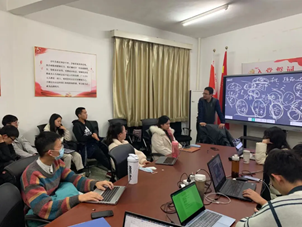
Finally, Teacher Wang Nan contacted real life. Nowadays, many young people are living under high pressure and facing the dilemma of "involvement". How can people live and find the true meaning of life in an ordinary and mundane life with an unusual and mediocre mentality? This is a problem that everyone must face. The teacher emphasized that ordinary is not the same as vulgar, and one cannot forget how to live an ordinary life, and cannot forget the most important value and meaning of life in one's life. The world is impermanent and the result is unknown. The important thing is to maintain the vitality and enthusiasm for life, and to be consistent with a firm mind and action.
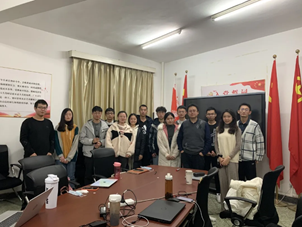
Through the teacher's patient explanation and the students' heated discussion, everyone has a deeper understanding of the fundamental meaning of "Battle Royale", and also gained more insights into the current way of life, and gained a lot. At 9:30 in the evening, the movie sharing session ended successfully.